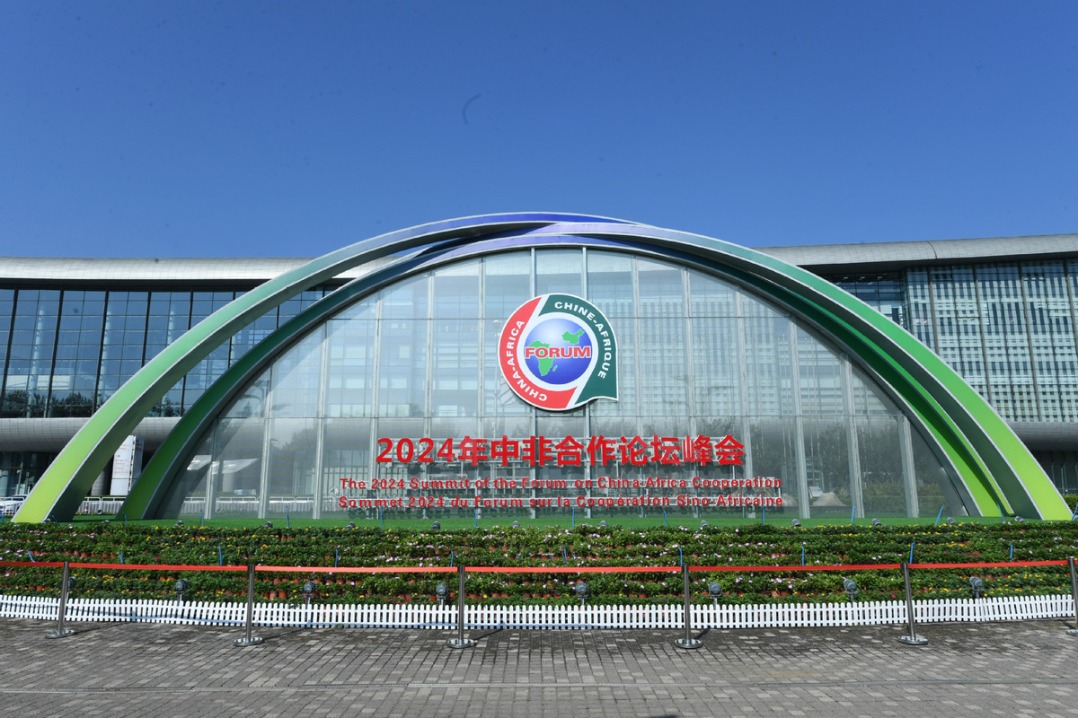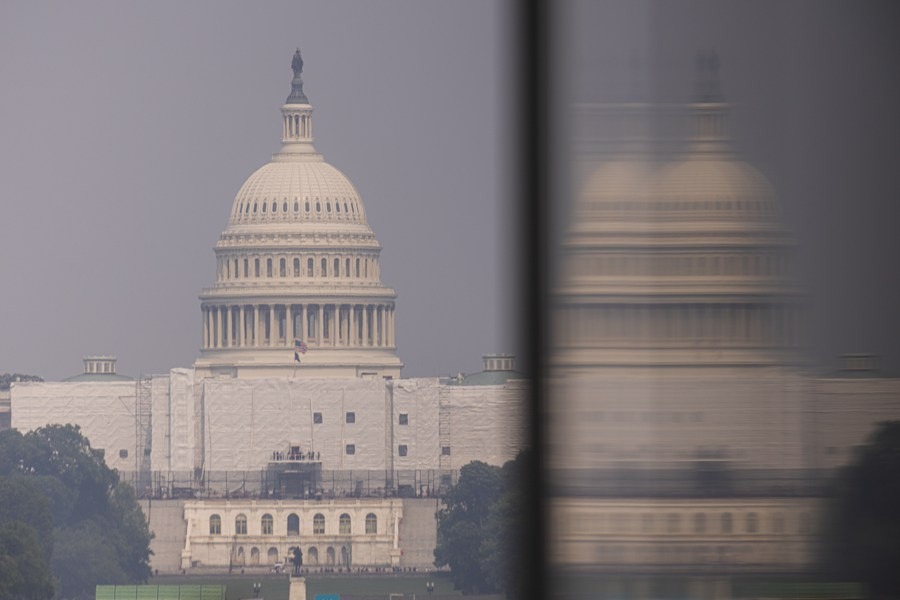China-US Sunnylands statement rekindles hope of tackling climate crisis


The recent meeting between the leaders of China and the United States has attracted considerable attention. But that should not detract from the importance of the Sunnylands statement, which showcases both nations' commitment to engage in dialogue and collaboration on climate issues.
Because of the three years of the COVID-19 pandemic and escalating geopolitical tensions, global efforts to combat climate change have faced hurdles and even regressed. In this context, the Sunnylands declaration undeniably brings the much-awaited warmth of hope amid the prevailing challenges. Particularly on the eve of the United Nations Climate Change Conference (COP28) taking place in Dubai, United Arab Emirates, from Nov 30 to Dec 12, the agreement to expedite actions against the climate crisis despite previous disagreements sets a positive tone for negotiations and is poised to significantly contribute to its success.
It is imperative to acknowledge that the climate crisis is now an undeniable reality, transcending mere scientific models. That is why, despite the tumultuous international environment, major powers have continued dialogue on climate-related issues. Addressing the climate crisis has become an indispensable priority for world leaders. At the heart of international relations lie national interests. The willingness of nations to set aside past grievances, bridge religious and cultural differences and development needs, to cooperate on climate issues underscores the pressing reality of the crisis.
According to a report the World Economic Forum published in 2021, if the climate crisis continues unchecked, the global average temperature could rise by 3.2 C by 2050, resulting in an approximate 18 percent loss of the global GDP, equivalent to roughly $23 trillion.
In contrast, effective implementation of the Paris Agreement, limiting global temperature rise to below 2 C, would result in less than 4.2 percent in economic losses to the global GDP. Asia is anticipated to bear the brunt of the impact, with the region's GDP falling by 5.5 percent, even within the 2 C scenario.
However, these numbers only scratch the surface, encompassing extreme weather events, climate disasters, food scarcity, flooding from rising sea levels, and population displacement. More profound losses, such as the extinction of numerous species, impacts on human health, exacerbated poverty and inequality leading to social upheavals, are incalculable. WHO estimates suggest that between 2030 and 2050, climate change could cause an additional 250,000 deaths annually due to malnutrition, malaria, diarrhea, and heat stress.
Both the US and China are not immune to these consequences. In 2022, the US incurred losses exceeding $176 billion due to weather and climate disasters. Research from Tsinghua University's Institute of Energy, Environment and Economy reveals China's faster temperature increase compared to the global average over the past 70 years. The country experiences an average annual economic loss of approximately $50 billion due to climate-related disasters, roughly equivalent to 0.4 percent of the nation's GDP. Although 0.4 percent may seem trivial compared to China's past double-digit GDP growth rates, the impact of climate change is not linear. Temperatures surpassing critical points could lead to a scenario of an 18 percent global GDP loss by 2050, or even worse.
Contemporary Chinese citizens have not seen significant nationwide economic downturns. In recent years of economic slowdown, many businesses and individuals have felt the chill though. If the climate crisis remains inadequately addressed, far more adverse outcomes could follow, impacting generations born in the 1970s, 1980s, 1990s, and 2000s during their later years or even in their prime.
The climate crisis fundamentally represents a tragedy of the commons. To draw an analogy, we are all "shepherds" tending to the Earth's land. In times of abundant grass and water, if experts predict that overgrazing might deplete resources in 100 years, a shepherd focused solely on self-interest might ignore the warning. Shepherds who are concerned about their descendants would persuade others to limit herd expansions while clandestinely growing their own. However, when the prophecy becomes a reality — as pastures begin deteriorating and some herds suffer from malnutrition — even the self-centered shepherds will start reducing livestock size on the basis of cost-and-benefit calculation. Moreover, influential shepherds will aim to persuade others to collectively mitigate risks. Younger shepherds, facing potential starvation without inheriting elders' pastures, would vehemently voice concerns. As such, participating in collective action to address the climate crisis is no longer purely altruistic but a rational choice.
As the world's largest economies and top emitters of greenhouse gases, the China-US leaders' meeting and the Sunnylands statement inject confidence and vitality into global climate cooperation at a crucial historical juncture. This reinforces our belief in the power of "rationality" and our faith in the international community to make informed choices in tackling the climate crisis.
The author is a researcher at the China Europe International Business School Lujiazui International Institute of Finance.
The views don't necessarily reflect those of China Daily.

































